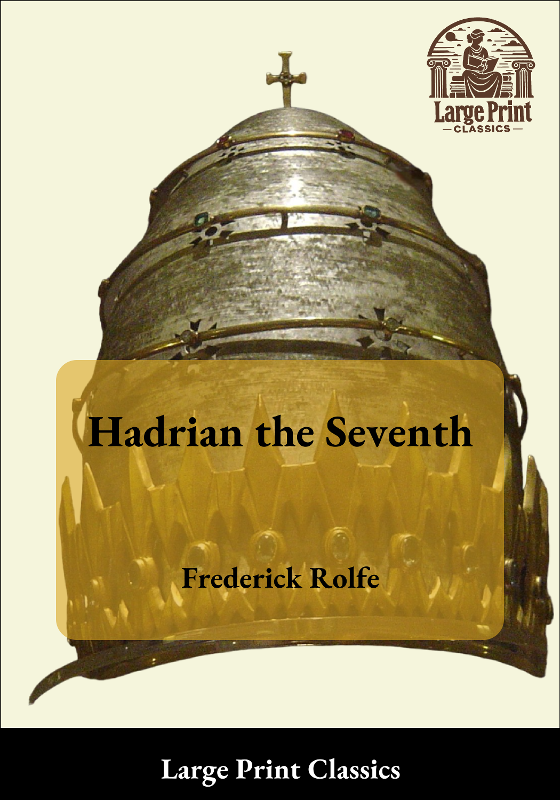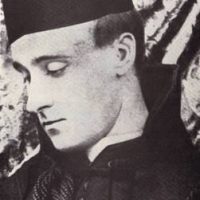Hadrian the Seventh
Frederick Rolfe

About
George Arthur Rose aspired to the priesthood, but after being much abused and taken advantage of for many years by his Catholic brothers, he finds himself disillusioned with humanity. But just as the secret conclave in Rome is deadlocked in the election of the next Pope, he finds himself rediscovered. A compromise in the election results in Rose being chosen for the office, and he styles himself as Hadrian the Seventh. With his new authority, he implements church reforms and a program to bring Christian order to the nations of the world.
Frederick Rolfe was considered an eccentric, as evidenced by his often-idiosyncratic spelling (“Xystine Chapel”) and made-up words like “contortuplications” and “occession.” Hadrian the Seventh, written under the pen name of “Baron Corvo,” is a novel of wish-fulfillment, reflecting Rolfe’s vision of how he wants to order the world given unlimited power. Written before the world wars and amid the increasing secularization of twentieth century society, it was perhaps almost-plausible to think that a religious figure could get everyone on the same program merely by moral persuasion.





